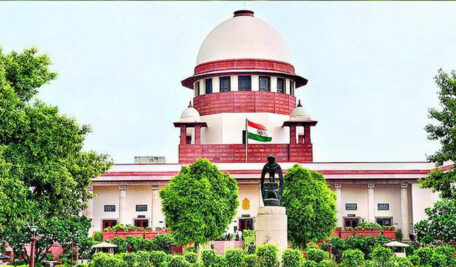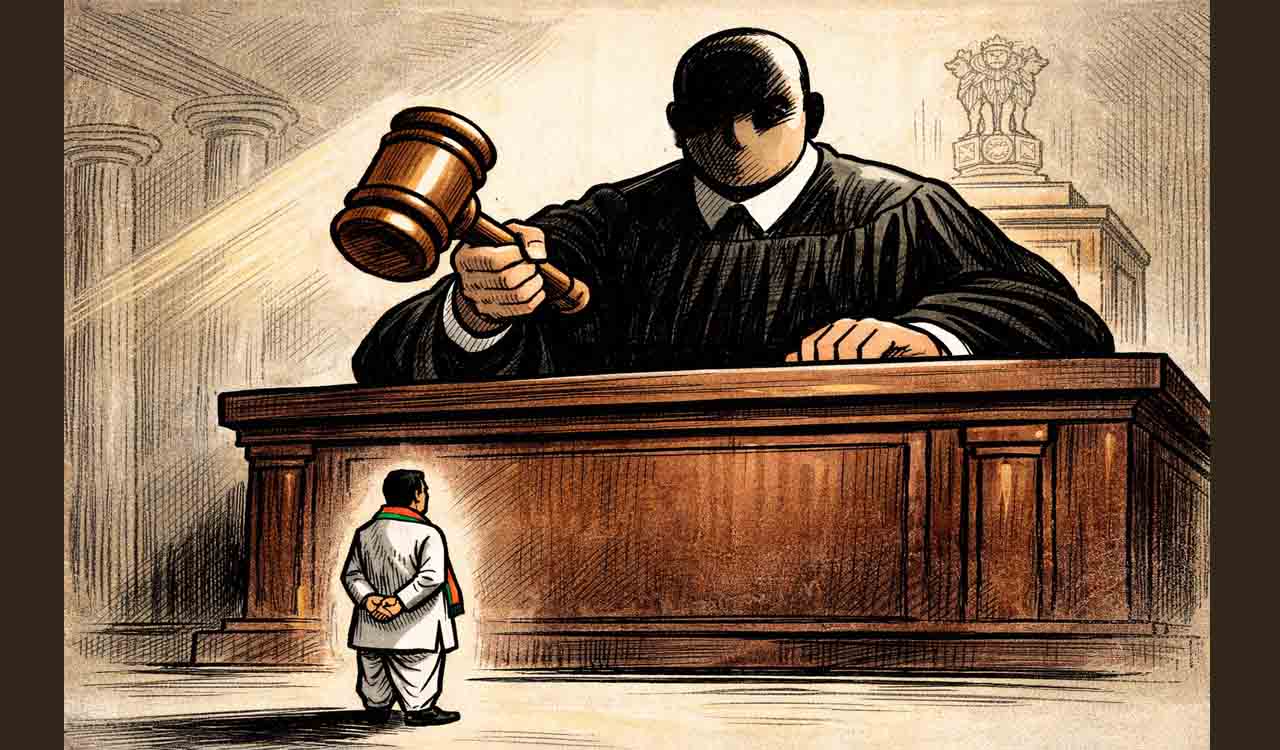Opinion: Fixing deadline for Presidential assent may break Constitution’s balance
Judiciary must remain the guardian of the Constitution — not its editor

By GHP Raju
The recent judicial pronouncement that mandates the President of India to decide within three months on State Bills reserved for assent has sparked intense constitutional debate. While the court’s intent to ensure efficiency and accountability is laudable, the method —judicially imposing timelines where the Constitution is silent — raises more questions than answers. This decision, if unchallenged, could redefine the subtle balance of powers between the Union, the States, and the Judiciary in India’s federal democracy.
Also Read
Constitutional Silence
Article 201 of the Constitution governs how the President must act on a Bill reserved by a Governor, but it notably does not fix any timeframe. By interpreting this silence as a vacuum to be judicially filled, the judiciary may have crossed into legislative terrain —something the Constitution strictly demarcates.
Legal precedents like Keshavananda Bharati V State of Kerala (1973) underline that the separation of powers is a core part of India’s basic structure. Courts interpret laws; they don’t create them. In State of Punjab V Devans Modern Breweries Ltd (2004), the Supreme Court itself clarified that it cannot direct constitutional authorities like
Governors or the President on how to exercise their discretion unless a mala fide intent is proven.
In short, if timelines are desirable, they must come through a constitutional amendment by Parliament, not judicial innovation.
Pocket Veto
The concept of a “pocket veto”— where the President neither signs nor rejects a Bill — is often mischaracterised as delay for delay’s sake. In reality, it serves as a silent but critical constitutional safeguard. This mechanism was most famously used by President Zail Singh in 1986 to withhold assent to the Indian Post Office (Amendment) Bill, which raised concerns about civil liberty violations.
Time-bound assent could encourage brinkmanship in State legislatures, pushing controversial Bills, knowing the Union has limited time to respond
Articles 111 and 201 are deliberately silent on time limits, recognising that Presidential assent — especially on Bills touching federal, constitutional or national issues — requires wide consultation, including with the Union Cabinet.
Global comparisons reinforce this logic. In the US, the pocket veto is an accepted executive power. In Germany, the Federal President can refuse to sign laws deemed unconstitutional. Australia allows indefinite withholding by the Governor-General. India is not an outlier; it’s a prudent practitioner.
State-level Adventurism
One of the less-discussed risks of curbing the President’s pocket veto is the potential for legislative misuse by State governments. India’s federal structure is unique in its diversity and fragility — linguistically, regionally and politically. The ability of the President to withhold assent becomes critical in this environment.
Imagine if State laws that encourage regional discrimination, restrict migration or undercut national programmes were forced through without adequate review. Historical precedents — like Tamil Nadu’s anti-Hindi Bills or regional job reservation moves in Maharashtra — prove that State legislatures are not immune to populism or political posturing.
The President’s discretion acts as a “cooling-off” valve, allowing time for consensus-building, expert consultation, or even judicial advice, without resorting to hasty approvals or outright rejections.
A Two-way Street
India’s federalism is not a binary of Centre versus State — it’s a constant negotiation of power, responsibility and restraint. The Constitution gives the President this discretionary buffer under Article 201 not to stall, but to stabilise.
Fixing a rigid deadline can tilt this balance. It may limit the Centre’s ability to review laws that threaten inter-State commerce, national unity, or constitutional rights. The judiciary, in cases like SR Bommai V Union of India (1994), has itself upheld the primacy of federal harmony as a core constitutional value.
Simply put, time-bound assent could encourage brinkmanship in State legislatures, pushing controversial Bills knowing the union has limited time to respond.
Checks must be Symmetrical
Critics argue that the union can also misuse the pocket veto to delay politically inconvenient Bills from opposition-ruled States. That is true. However, the answer is not to abolish the mechanism but to acknowledge that both sides — Centre and States — need to be checked.
Just as judicial review checks executive overreach, the pocket veto checks legislative excess. Abolishing it would weaken the constitutional safety net at one end while leaving the other unchecked. If anything, more transparency and institutional oversight are needed —not a hurried dismantling of a protective tool.
What World Teaches
India is not alone in trusting the Head of State with such discretion. US Presidents have used pocket vetoes to block hundreds of Bills. In Nigeria and the Philippines, executive assent can be withheld indefinitely unless overridden by legislative supermajorities. South Africa’s President can even send Bills for judicial review if constitutional doubts arise.
These democracies show that discretion, when used sparingly and wisely, is a virtue — not a vice. India’s President plays a similarly high-stakes constitutional role, especially on Bills with national ramifications.
Rather than removing the pocket veto, a more nuanced approach is needed. The real issue lies in treating all Bills the same — whether they’re about local civic bodies or questions of national security.
A workable solution could involve:
• Routine Bills: Governor assent within three months; only refer to President if necessary.
• Sensitive Bills: Those affecting the federal structure, religion, language, migration or Centre-State relations could justifiably be held for longer scrutiny or sent to courts.
• Legislative Scrutiny Body: A joint Parliamentary-constitutional expert committee could help classify Bills and advise the President on appropriate action.
• Pre-legislative Transparency: Mandatory public consultation and legal vetting for controversial Bills would ensure fewer surprises and better-prepared scrutiny at the Union level.
This system would retain constitutional flexibility while preventing misuse.
Rewriting Roles, Redrawing Risks
Ultimately, the idea of fixing a timeline for Presidential assent may be driven by administrative impatience or judicial optimism. But tampering with institutional discretion, especially in a federal democracy like India, could lead to unforeseen consequences.
In the push for efficiency, we must not sacrifice the safeguards that protect national cohesion and constitutional governance. The President’s pocket veto is not a relic to be discarded — it’s a constitutional tool of restraint, dialogue and balance.
Let reform come through Parliament, not through reinterpretation. The judiciary must remain the guardian of the Constitution — not its editor.
(The author is IPS (retd) and former Principal Secretary, Government of Meghalaya)
Related News
-
Deadly avalanche kills eight skiers in California
10 mins ago -
Ayodhya priest questions Telangana govt’s Ramzan relief move
36 mins ago -
Titans emerge champions in sixth Samuel Vasanth Kumar memorial basketball tournament
39 mins ago -
Hyd Open golf championship to kick off from February 19
45 mins ago -
Jammu and Kashmir enter Ranji Trophy final with win over Bengal
45 mins ago -
Telangana High Court seeks ground report on forest plantation at Damagundam
48 mins ago -
Sahibzada Farhan century powers Pakistan to big win over Namibia
49 mins ago -
Chief Minister’s Cup 2025 sees record participation across Telangana
52 mins ago




